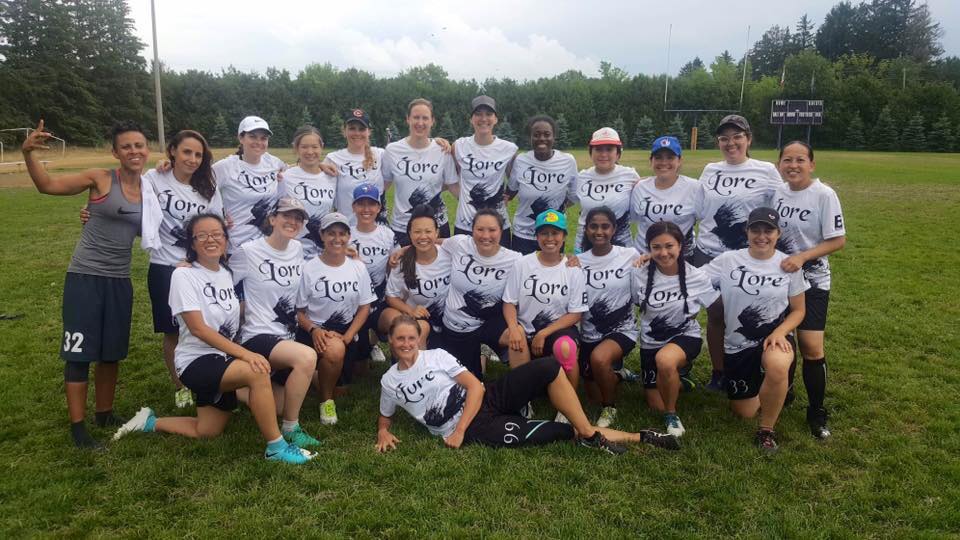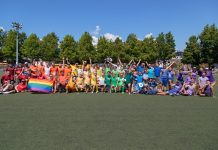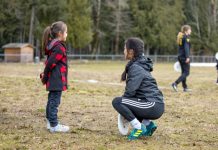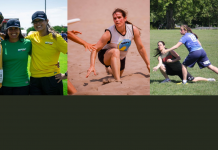Ultimate Canada Magazine – February 21, 2019
Black History Month takes place in Canada every February. Canadians are invited to participate in Black History Month festivities and events that honour the legacy of Black Canadians, past and present. You can find more information about the month here.
Our third instalment features Nicole James, a prominent member of the Toronto Ultimate community, playing for Toronto’s Lore last summer.
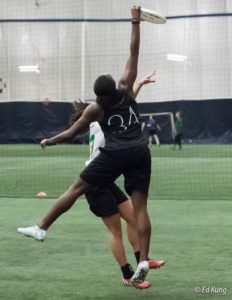
Ultimate Canada: How did you get started in Ultimate?
Nicole James: I came to ultimate pretty late. I think it was about 26 years old when a friend of mine started playing recreationally with her coworkers. I was in a serious funk after a break up of a long term relationship so she dragged me out of the house to watch her play thinking I might like it. She was right, and although her team had a full roster, I ended up picking up with the team she was playing against that day for the rest of the season. I was hooked from there. Everyone was so patient and helpful as I was learning, I was also able to go to some skills clinics early on which was cool because even though my athleticism got me pretty far on the field, I wanted to do more than just run to the endzone and catch. I couldn’t have imagined trying to pick up basketball or soccer as an adult.
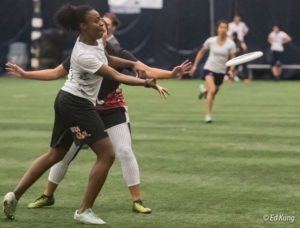
UC: How has your experience been, being a player of colour in the community?
NJ: It has been mostly positive. I was so used to being around mostly white people at school growing up and with my co-workers that it doesn’t feel out of the ordinary to be the only black person on the field. The first jersey I got literally said Token on the back instead of my last name… It’s a joke that I’ve outgrown, and am pretty embarrassed by it thinking back, but the conversations around race and diversity have matured since then. As has how I see my responsibility as a Black person in spaces that aren’t often occupied by Black people. I now play in Toronto where even though there aren’t too many black players, there is a fair amount of diversity overall. I definitely go to tournaments and give “the nod” when I see another black player. There have only been a few times where I’ve felt straight up uncomfortable. Each time it has had to do with the N word in songs being played in warm up music. I’ve never spoken up about it because I don’t want to mess up the mood, but it isn’t the most welcoming thing in a space where you are the clear minority. It could be something that only I am bothered by though.
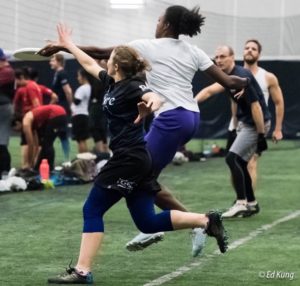
UC: Do you have any thoughts on how we can increase participation from the Black community in Ultimate?
NJ: There are lots of important conversations happening around gender equity in Ultimate. Local clubs are taking specific actions and implementing specific policies with regards to it. While the issues are not the same and there are different factors at play, I think we can be as purposeful when it comes to promoting cultural diversity in the sport. One thing I have heard from students that I work with, is that if they feel like something is considered a “white thing” they are less inclined to pursue it. I’d love to see youth clinics and teams being offered at schools and in communities with lots of black and brown kids. I also think it is important for Black ultimate players to talk up the sport to
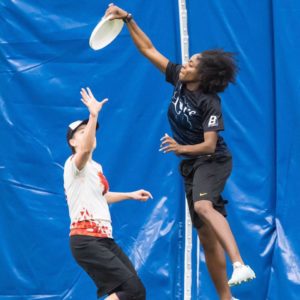
the youth that are around them. Make it known that you play and tell them about opportunities to get started. Ultimate doesn’t belong to any specific group of people, but we have to let kids know that by showing them it belongs to everyone. For adults I usually add a friend who hasn’t played to my rec/inter team in the summer so they can see if they enjoy it. Ultimate is a great sport and at this point I feel like its just a matter of getting Black people on the field to begin with. Being intentional about representation helps.
